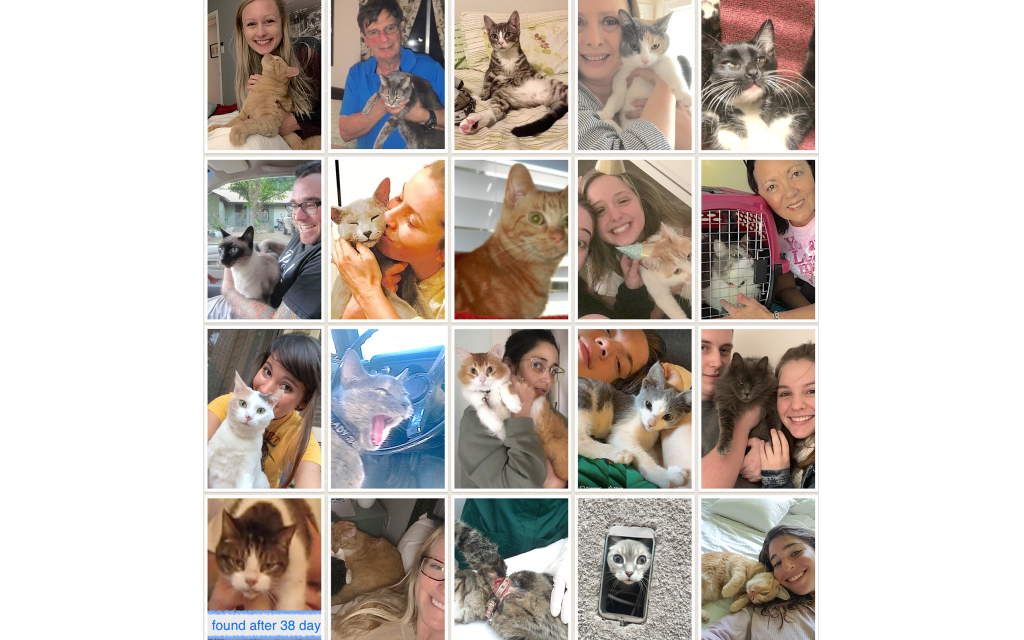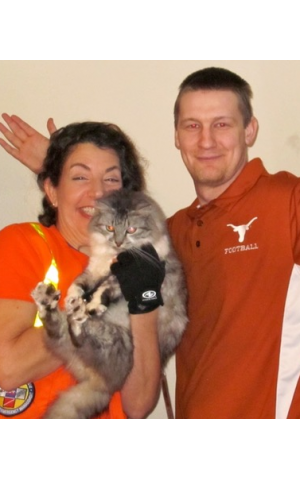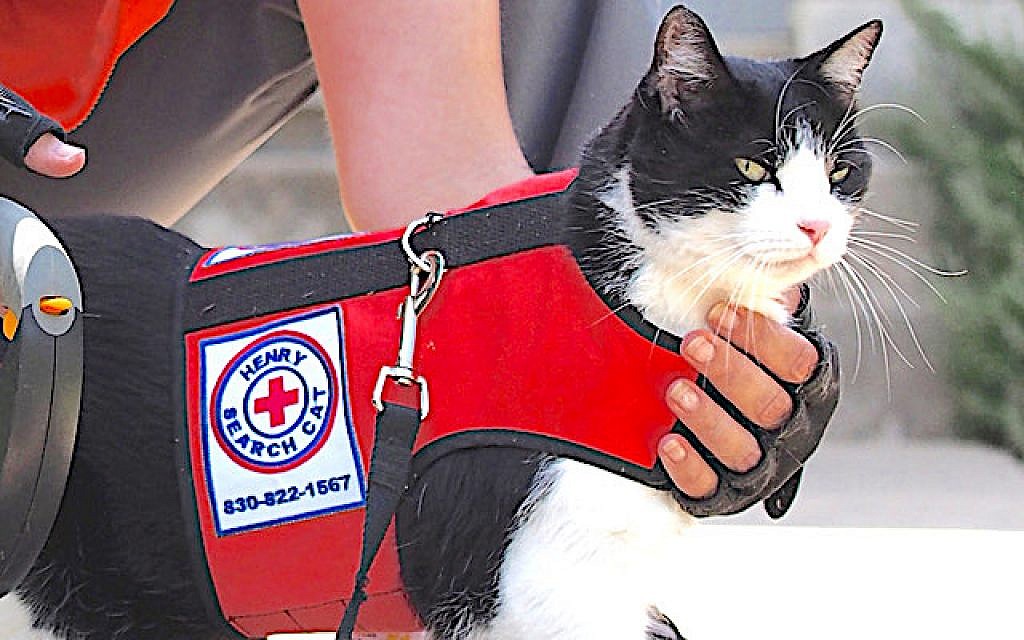Pet Detective Follows Clues to Stray Cats
When Kim Freeman lived on a horse farm, one of her companions was an orange cat named Mister Purr. He went missing one day, and Freeman promptly freaked out.
Kevin Madigan is a senior reporter for the Atlanta Jewish Times.
When Kim Freeman lived on a horse farm in Texas years ago, one of her companions was an orange cat named Mister Purr. He went missing one day, and Freeman promptly freaked out.
“No one took me seriously in my panic,” Freeman said in a phone interview with the AJT. From that moment of desperation, she took it upon herself not only to find her fleeting feline but then made it her life’s work guiding others to do the same thing.
“Had I listened to the typical advice such as ‘He’ll come back when he’s ready’ and the old ‘Put his litter box outside,’ Mister Purr would have died behind this fence in a rancher’s metal shipping container. He is why I do lost cat search and rescue, both to save other cats, and support the people in panic mode who are getting the usual bad advice.”
Freeman runs Lost Cat Search & Rescue, based in Decatur, and she has had considerable success using some less-than-obvious methods in finding missing cats and to train owners to conduct their own searches. She is also author of the book “How To Find Your Lost Cat.”

She said the basics of the training come from the world of missing persons procedures and investigative questioning. This means profiling the subject; learning their habits, personality and preferences; then assessing what happened to the cat and location based on the probability theory.
“There are eight possibilities that cover what may have happened with any missing cat. Each case begins with a profiling session to assess the probability of each one. Studies show that various cat personalities behave differently when displaced from their known territory. We also know that indoor cats require different techniques than outdoor-access cats. All these observations help us recover cats based on the probability theory, factoring in time, location, the weather, the cat’s personality and terrain in which cat was lost,” Freeman said.

“I will take the address of where the cat was last seen: their house or the vet’s parking lot or wherever and then look at a Google map, figure out a parameter where the cat might be, based on his personality, and then I’m able to rule some places out. He’s not going be in the middle of the street, for example. Then you deduce down to the probability of where he’s most likely to be, and you can start your search there.”
She added that people in search mode can be counter-productive. “There is a probability that the cat will evade you,” Freeman said. “A lot of people tend to cover the whole area, but you’re just pushing him further away because he’s evading the big loud noise coming towards him. If you’re walking around shaking trees they’re not going to go ‘here I am.’ Sometimes people actually drive around calling them. Cats don’t come when they’re called.”
Another key element in her work is the use of equipment such as sound amplification devices, drones, infrared night-vision cameras, thermal scopes, borescopes and humane trapping techniques. Freeman has also studied bird language to pinpoint the location and movement of cats. Her most valuable tool is a powerful flashlight usually used by hunters, law enforcement, and the military.

And then there is Henry, her tracking cat and secret weapon. “I adopted Henry in 2014 and began training him to follow a scent trail, tapping his paw on evidence he finds along the way,” she said. “That year near Christmas, Henry and I were called out to find a kitten who escaped the owner’s car at a gas station in the night. Thanks to Henry, it was a quick, successful recovery.”
Being able to coach clients long-distance is gratifying for Freeman, who has helped people get missing cats found in nearly every state, and several other countries. This not only makes many people happy, she pointed out, it also keeps hundreds of strays out of the shelter system.
It’s all about education, Freeman said. “That’s why I wrote the book, to educate people. It’s kind of a do-it-yourself system. Just read the book.”
For more information about Freeman and her book, visit www.lostcatfinder.com.




comments